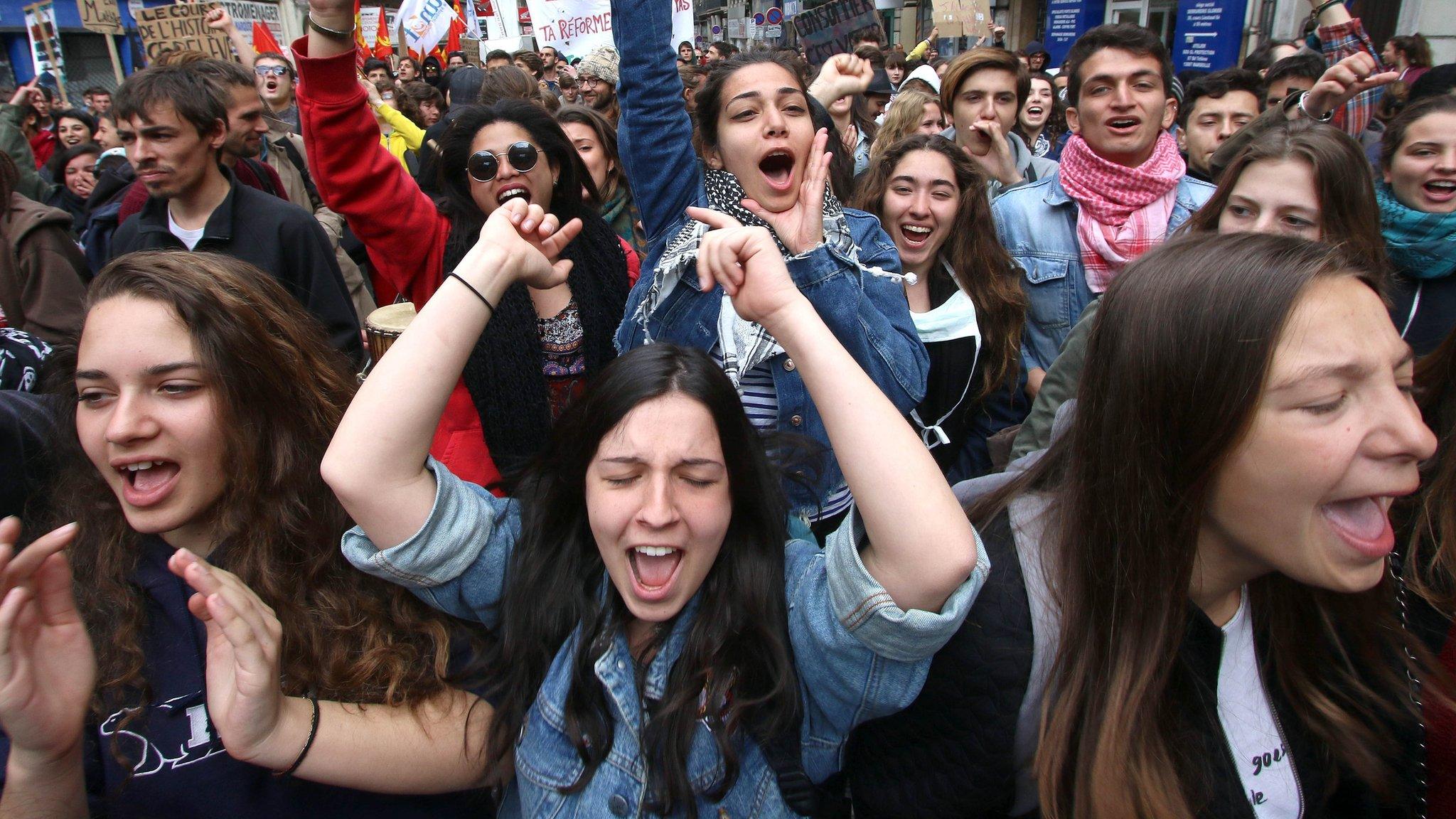French petrol supplies hit by labour law strikes
- Published
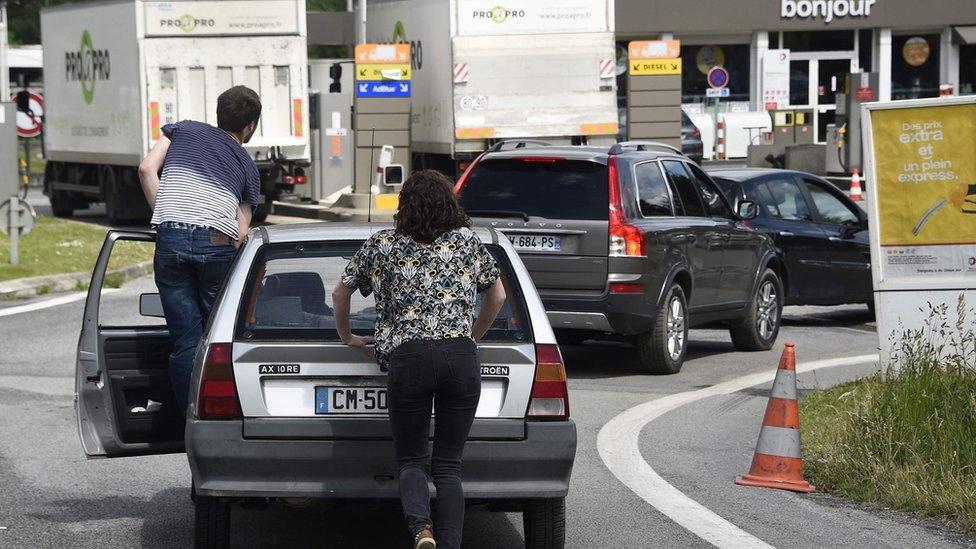
Supplies were worst hit in the north and west of France, including in the city of Rennes
Hundreds of French petrol stations have run dry and the unions say five oil refineries are being blockaded as protesters fight against government labour reforms.
Queues were reported at petrol stations in many areas of France, especially in the north and west, but in Paris too.
However, the transport minister said it was wrong to talk of petrol shortages.
For the past week, protests have taken place across France after new labour rules were forced through parliament.
Prime Minister Manuel Valls invoked special powers under the constitution to avoid a revolt by dozens of Socialist MPs earlier this month.
Do French workers really have it easy?
Protests as Valls forces labour laws through
Violence mars Paris police protest
Hollande's last throw of the dice
But his decision to bypass parliament infuriated opponents. Last week, two police officers in central Paris narrowly escaped serious injury when their police car was set alight.
By Monday morning, the CGT labour union said that five of France's eight oil refineries were out of action, from Martigues near Marseille in the south to Gonfreville-l'Orcher at Le Havre in the north.
Union spokesman Emmanuel Lepine said the "aim is not to create shortages, the aim is to secure the withdrawal of the labour law".
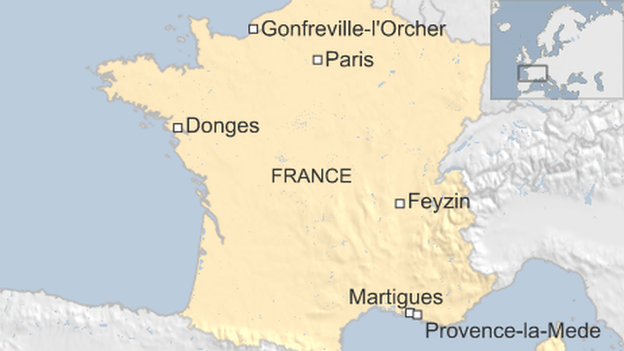
Police moved in to unblock many of the petrol depots across France which had been blockaded for days and Mr Valls said everyone should be clear that the government would do its utmost to avoid shortages.
However, some 1,600 of France's 12,000 petrol stations had either run dry or were running short of supplies by late Monday morning.
French petrol industry association UFIP said it had enough supplies but could not distribute them normally.
Finance Minister Michel Sapin has condemned the blockade of refineries as illegal.

French labour reform bill - main points
The 35-hour week remains in place, but as an average. Firms can negotiate with local trade unions on more or fewer hours from week to week, up to a maximum of 46 hours
Firms are given greater freedom to reduce pay
The law eases conditions for laying off workers, strongly regulated in France. It is hoped companies will take on more people if they know they can shed jobs in case of a downturn
Employers given more leeway to negotiate holidays and special leave, such as maternity or for getting married. These are currently also heavily regulated

- Published26 May 2016
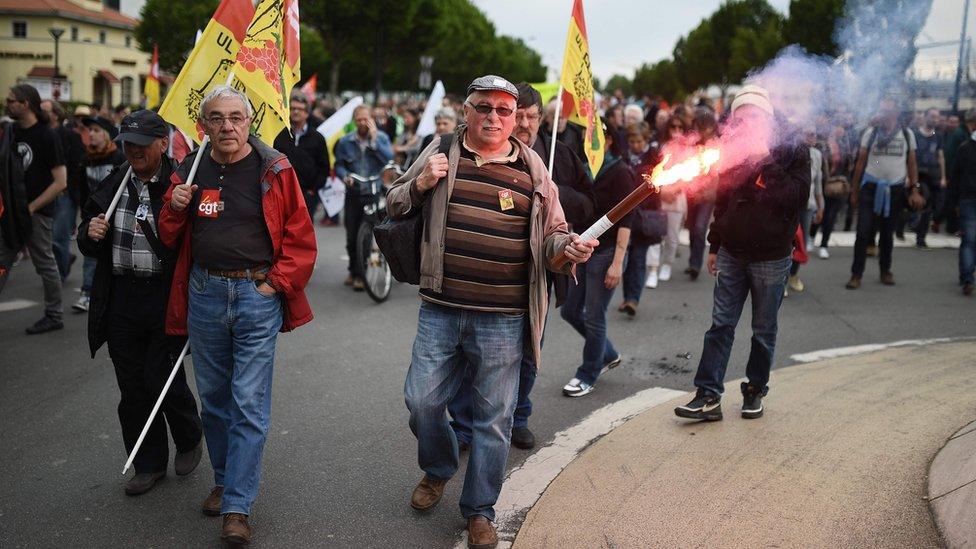
- Published11 May 2016
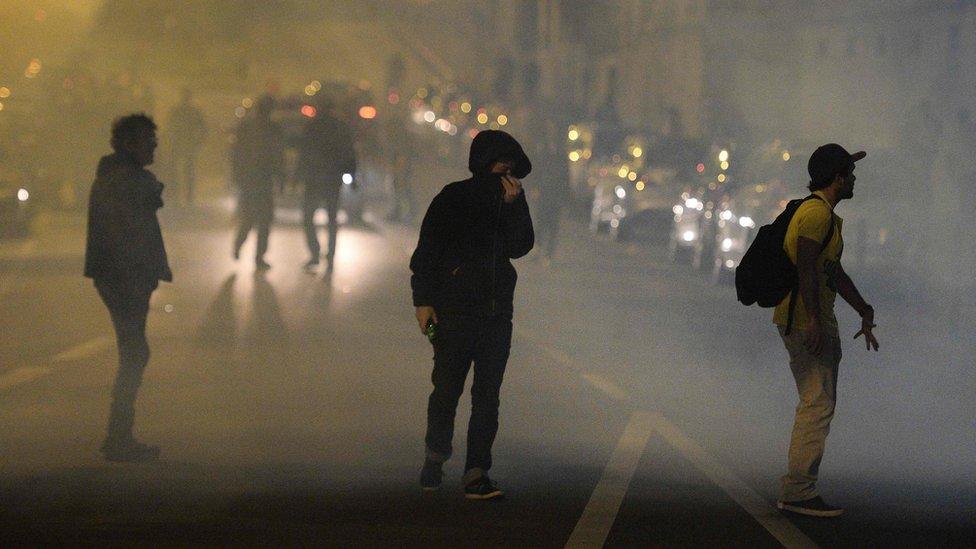
- Published28 April 2016
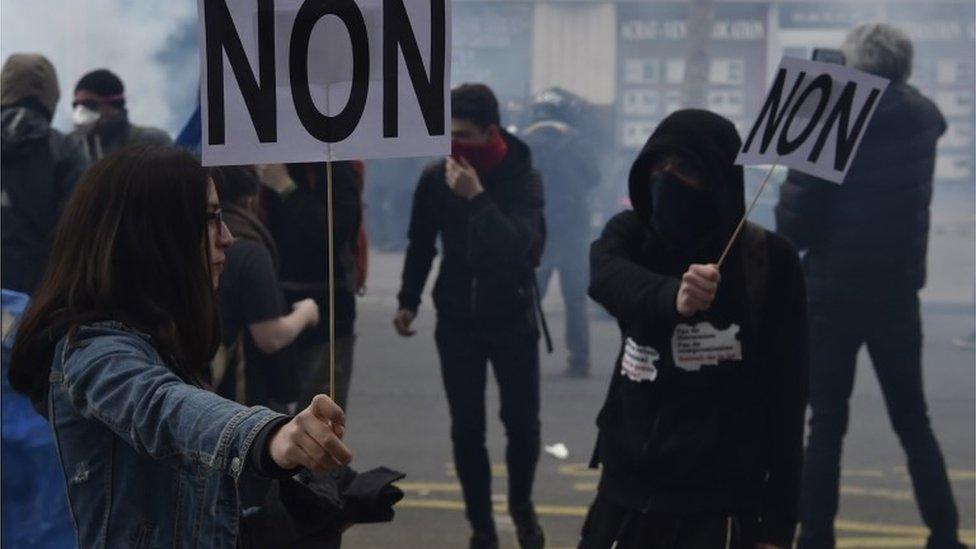
- Published29 April 2016
